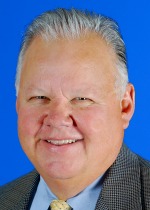 By Tom Sponsel, CPA/ABV, CFF
By Tom Sponsel, CPA/ABV, CFF
Managing Partner
(Part 3 of 4)
In the first two articles in The Baby Boomer Challenge, we discussed planning for retirement and the financial aspects of preparing for a post-work life. Now it’s time to talk about the psychological impact of stepping away from your career.
This can be a touchy subject, especially for business owners and managers. They are by nature can-do people, the type who focus on achieving their goals rather self-analysis of their own motivations. Having attained so much professional success, they are therefore less prepared to transition to a life that is not defined by their career.
After assisting countless people through succession planning and retirement, I can speak from authority in saying that many of them experience a loss of self-worth. They are so used to being in the thick of things that having the daily pressures of the workplace suddenly removed can feel abrupt and even traumatic.
At its most basic level, there is an adjustment to not physically going into the office every day. Recently retired people will say they don’t know what to do with themselves. There’s only so many times you can walk the dog around the block or play golf. That simple day-to-day routine of getting up and going to work gives people structure that makes them feel valued.
Another loss occurs when there is no longer a continuous stream of people seeking you out for advice and counsel. A person in a senior position can take great satisfaction from having their expertise utilized by others for the benefit of the organization. When that stops, they feel their skills and experience are no longer relevant and accordingly they believe they personally are no longer relevant!
This can translate to a sense of “losing” their professional status, which also means a hit to their self-worth. People want to know they still have something to contribute.
One can fill these gaps through exercise, hobbies, travel, watching over the grandkids and other activities. And there’s volunteerism, which is a terrific way for retirees to feel connected and appreciated.
I have seen many business executives go into the not-for-profit area, either as a part-time volunteer or a full-time position, and find a whole new identity waiting for them. They gain the socialization of the workplace as well as the utilization of their skillset.
Another option is to keep working but in a limited role. An emeritus position, perhaps a day or two per week, can allow a manager to feel like they are still contributing. A role that focuses on mentoring up-and-coming leaders can be especially satisfying.
This can bring its own set of challenges, of course. I spoke with one former executive who said that, even though he enjoyed coming into the office, it was difficult seeing someone else occupying his old office and leadership role.
He eventually sought professional counseling to get through this phase – something that is not at all unusual. There is no stigma in asking for help, and is something that should be actively encouraged.
By all means, if you’re approaching retirement age and don’t feel like stepping away – don’t! I know of some executives who refuse to even utter the word “retirement” because they fear the unknown. There’s no rule that says you have to retire when you’re 65, or 75, or even 85!
But sooner or later, nearly all of us will be faced with transitioning to a post-working phase of life. Don’t underestimate the emotional aspects of this change. The key is to explore this new terrain with the same gusto that they brought to conquering their professional endeavors.
The key “take-away” of this article is that if you or other loved ones are approaching the “retirement phase,” approach it with honesty and realism. Retirement is different for everyone. I know individuals who are still working into their 80s and are loving it! And others who retired at age 55 and would not change a thing.
In each case their success was determined by a deliberate analysis (along with their spouse) and an intentional plan for a Happy Retirement!
Look for the final installment in this series next month as we discuss transitioning into your post-retirement life.
If you would like assistance with your retirement planning, please contact Tom Sponsel at (317) 608-6691 or email [email protected].
